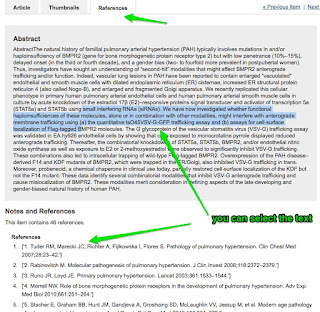We are pleased to announce a new program to make Open Access monographs available on the JSTOR platform. An initial set of titles is available from four outstanding publishers: University of California Press, University of Michigan Press, UCL Press, and Cornell University Press. We expect to add several hundred more Open Access titles over the next year.
The ebooks, which reflect JSTOR’s high standards for quality content, are freely available for anyone in the world to use. Each ebook carries one of six Creative Commons licenses determined by the publisher. The titles are easy to use, with no DRM restrictions and no limits on chapter PDF downloads or printing. Users will not need to register or log in to JSTOR. Librarians can receive free MARC records and activate the titles in discovery services.
This initiative furthers JSTOR's mission to expand access to knowledge and education while lowering costs, and joins other efforts to maximize access including the Early Journal Content program, the Register and Read program, and the African Access Initiative. We look forward to sharing what we learn with the scholarly community.
October 25, 2016
http://about.jstor.org/news/open-access-ebooks-now-available-jstor
http://about.jstor.org/open-access?cid=dsp_j_oabooks_10_2016&utm_source=jstor&utm_medium=display&utm_campaign=books_ad_dec2015&cid=dsp_booksad_Oct2016
https://en.wikipedia.org/wiki/JSTOR
---
http://about.jstor.org/publishers-faq
How will JSTOR work with CrossRef?
JSTOR has joined CrossRef and paid membership dues. JSTOR plans to register DOIs for all articles in the archive that have not previously been registered. This will enable users of the CrossRef system to link to hundreds of years worth of articles in the arts, humanities, sciences, and social sciences.
Are there any fees for having JSTOR register DOIs for our articles?
JSTOR covers all the fees associated with registering DOIs on behalf of our participating publishers in the archive collections.
Will JSTOR register DOIs with Cross Ref for all content types?
No. JSTOR will only register DOIs for full length articles and book reviews. This is the content most likely to be cited in other publications and therefore the target of links. JSTOR may decide to include other materials (news items, editorials, etc.) in the future.
---
DOI's are managed by Crossref.org. For each DOI, Crossref's database has a redirect to the current location of that digital object, and the owners can move things around and update the Crossref database as needed. When you follow a link to http://dx.doi.org/doi..., the crossref servers redirect this request to the current location of that paper. As mentioned in another answer you can lookup an article in the crossref.org database to see whether or not it has a DOI.
Recent articles have typically been assigned a DOI by the publisher, and most publishers put the DOI on the title page of the paper so it's easy to find that way.
Older articles were originally published without a DOI, but the publisher may have assigned one after the fact. If the publisher has not already assigned a DOI, then JSTOR may have assigned a DOI to the article that will point to the copy of the article in the JSTOR database. This is a service offered to publishers by JSTOR, but not all publishers use it. Thus not all articles in JSTOR have DOI's.
It appears that the article you linked to has not been assigned a DOI by either its original publisher or JSTOR and thus has no DOI. I can't find the article in the crossref database. The "stable URL" that you linked to is probably the best way to link to the article.
http://academia.stackexchange.com/questions/42233/how-to-find-doi-for-article-in-jstor
---
An example of a free article
http://www.jstor.org/stable/10.1086/674336For example, in JSTOR
search "biophotonics"
you will get only one article:
'Biophotonics' is inside the text of this article.
If you download the pdf, you will get a pdf (you copy/paste text).
If you click, you will see this infos
and the DOI of jstor
Three "sheets"





No comments:
Post a Comment